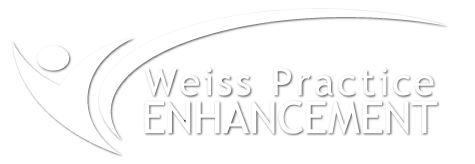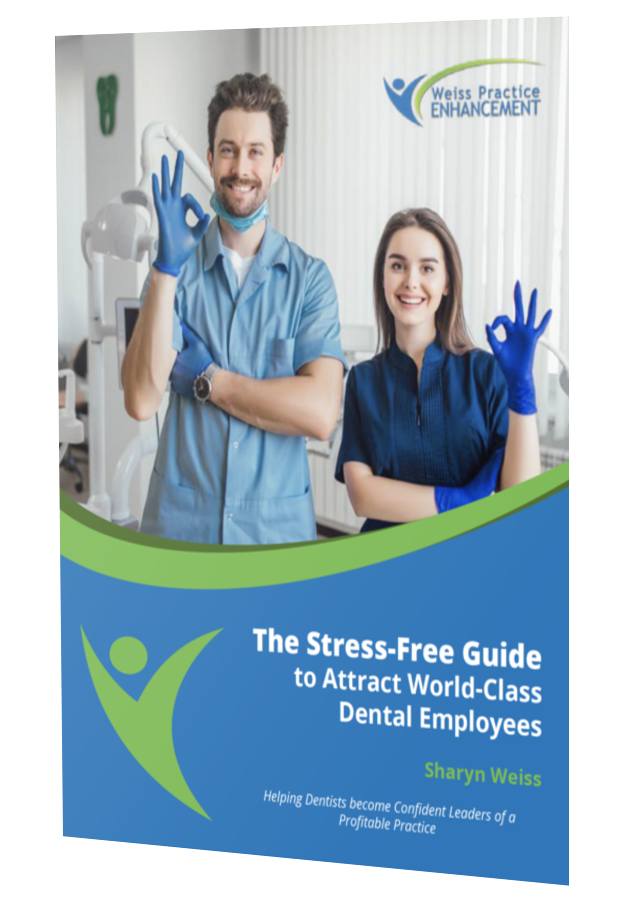How do you choose a dental practice consultant who will help your practice soar? Who should you trust? How much should it cost? Should you go with a big firm or an individual consultant? What results can you reasonably expect? (Note, these are the same questions patients ask themselves when looking for a new dentist!)
As a dental consultant for 20 + years, I’ve met dentists who’ve been burned by previous consultants and dentists who are so wary they prefer to struggle with practice management issue for decades instead of seeking help.
But the right dental consultant can ignite a trajectory of huge personal and professional growth, so in this article we’ll examine how to recognize the best consultant or firm for you.
Your Agenda or the Consultant’s Agenda?
Most of us are annoyed by telemarketers who use a generic script to pressure us to buy their service or product whether or not we need it. Unfortunately, some dental consultant firms can have a similar approach. They have a tool, methodology or system they want you to apply in your practice because it works for them and has helped others.
But isn’t this backwards?
Imagine if you told every new patient that since you specialize in Invisalign, you highly recommend they get that – without even doing an exam.
A dental consultant should first engage in a co-discovery process with you to identify your challenges, goals and values so that you both can determine if their skill set and processes matches your situation.
Defining Your Goals
Therefore, before you interview potential consultants, ask yourself 3 diagnostic questions so that you truly understand your priorities.
- What do I want to accomplish?
This is a deceptively hard question. Responses like, “I want be less stressed,” or “I want better systems” are too vague. Describe the specificimprovements you want and their timeline. What do you want to see, hear and experience in your practice that is different than the present?
2. Why do I want this?
This question helps identify your true motives and priorities. If you want to increase production by 10%, determine why you want this. What will this increase mean to you? What issues will it resolve? How important is this to you?
3. How will I measure success?
Define both objective and qualitative standards for success so that you can communicate your goals. For example, your yardstick for success can be:
- I retain 80% of my key staff members
- My hygienists achieve their daily production goal 90% of the time
- Employees resolve their conflicts without my intervention.
When you interview consultants, make sure your goals are codified in their proposal. Then you and the consultant can identify the action steps needed to achieve your goals.
Once you have defined your goals, you’re ready to interview consultants.
10 Questions to Identify a Good Fit
- What is your firm’s overall consulting philosophy?
- How would you tailor your consulting to match my unique needs and goals?
- What’s your process for conducting an initial assessment of my practice?
- How do you help dental practices develop realistic financial goals?
- What is your success rate in achieving the practice’s statistical goals? What specific actions do you take if the practice is off target?
- How do you help dentists become more effective leaders?
- How do you help dentists improve their communication skills?
- How would you help me identify and capitalize on growth opportunities?
- What strategies do you use to train and develop the team?
- How do you handle unforeseen circumstances that can affect the consulting timeline?
Well-Known Consulting Firm or Independent Consultant?
Having worked as a practice management consultant in both scenarios, there are pros/cons of each type of consulting.
Dental Consulting Firm
| Pros | Cons |
| Have established processes based on years of experience with hundreds of clients. | You’re put on a prearranged program (the downside of established processes) that fits the firm’s business model. |
| Deep resources and connections to other dental affiliates. | The consultant you get is chosen by the firm and may be a mismatch. Or the consultant you love leaves the firm, which means you start over. |
| Opportunities for peer networking at classes or retreats. | Their staff and consultants share your practice’s issues, progress and financials which may affect your sense of privacy. |
| Employ a team of people with varying expertise. | The consultant is pressured to keep you as a client, even when it may no longer be in your best interests or even the consultant’s personal preference. |
| Often have a charismatic founder you get access to. | Their high overhead leads to high fees for you. |
The Solo Consultant
| Pros | Cons |
| Often a refugee from the big firm, so s/he has the background and experience in dental consulting without the high overhead. | Quality and background vary. The consultant may not have a deep background that fits your needs and doesn’t have a boss supervising their work with you. |
| Can recommend and affiliate with other dental professionals who may be more eager for your business. | May have one specialty (ex: hygiene) which means you need to hire someone else to help you with other issues. |
| You choose your consultant and will work directly with this person until you end the relationship. | Motivated to keep your business, which may or may not be in your best interest. |
| Because s/he doesn’t have a bureaucracy to answer to, the consultant can adapt your program or create new material to match your specific needs. | If something goes wrong, you work directly with your consultant, instead of a customer service agent. This can be a pro or con. |
The Bottom Line
Ultimately, choose a dental consultant who matches your values, your communication style and who demonstrates an expertise in your issues. Ask your potential consultant challenging questions not only about their successes but also about the less-than-successful stories. Make sure this is a person or firm that genuinely cares about you and your growth. Partnering with the right consultant can mean you accelerate your growth as a leader to reach your practice goals faster, so choose wisely.



